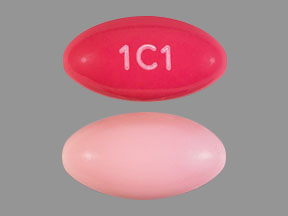Bijuva Interactions
There are 417 drugs known to interact with Bijuva (estradiol/progesterone), along with 22 disease interactions, and 8 alcohol/food interactions. Of the total drug interactions, 38 are major, 356 are moderate, and 23 are minor.
- View all 417 medications that may interact with Bijuva
- View Bijuva alcohol/food interactions (8)
- View Bijuva disease interactions (22)
Most frequently checked interactions
View interaction reports for Bijuva (estradiol / progesterone) and the medicines listed below.
- Adderall (amphetamine / dextroamphetamine)
- Adderall XR (amphetamine / dextroamphetamine)
- albuterol
- atorvastatin
- baclofen
- bupropion
- Flexeril (cyclobenzaprine)
- fluoxetine
- gabapentin
- Imitrex (sumatriptan)
- levothyroxine
- melatonin
- meloxicam
- metformin
- methocarbamol
- montelukast
- Mounjaro (tirzepatide)
- omeprazole
- Ozempic (semaglutide)
- pantoprazole
- prednisone
- Synthroid (levothyroxine)
- Topamax (topiramate)
- trazodone
- Vitamin B12 (cyanocobalamin)
- Vitamin D2 (ergocalciferol)
- Vitamin D3 (cholecalciferol)
- Vyvanse (lisdexamfetamine)
- Zoloft (sertraline)
- Zyrtec (cetirizine)
Bijuva alcohol/food interactions
There are 8 alcohol/food interactions with Bijuva (estradiol / progesterone).
Bijuva disease interactions
There are 22 disease interactions with Bijuva (estradiol / progesterone) which include:
- abnormal vaginal bleeding
- carcinomas (estrogenic)
- hypercalcemia in breast cancer
- hypertension
- thromboembolism/cardiovascular
- hepatic neoplasms
- breast malignancy
- liver disease
- thromboembolism
- angioedema
- gallbladder disease
- hypercalcemia
- hyperlipidemia
- liver disease
- melasma
- depression
- fluid retention
- glucose intolerance
- retinal thrombosis
- thyroid function tests
- hyperlipidemia
- weight gain
More about Bijuva (estradiol / progesterone)
- Bijuva consumer information
- Compare alternatives
- Pricing & coupons
- Reviews (49)
- Drug images
- Side effects
- Dosage information
- During pregnancy
- FDA approval history
- Drug class: sex hormone combinations
Related treatment guides
Drug Interaction Classification
| Highly clinically significant. Avoid combinations; the risk of the interaction outweighs the benefit. | |
| Moderately clinically significant. Usually avoid combinations; use it only under special circumstances. | |
| Minimally clinically significant. Minimize risk; assess risk and consider an alternative drug, take steps to circumvent the interaction risk and/or institute a monitoring plan. | |
| No interaction information available. |
See also:
Further information
Always consult your healthcare provider to ensure the information displayed on this page applies to your personal circumstances.


